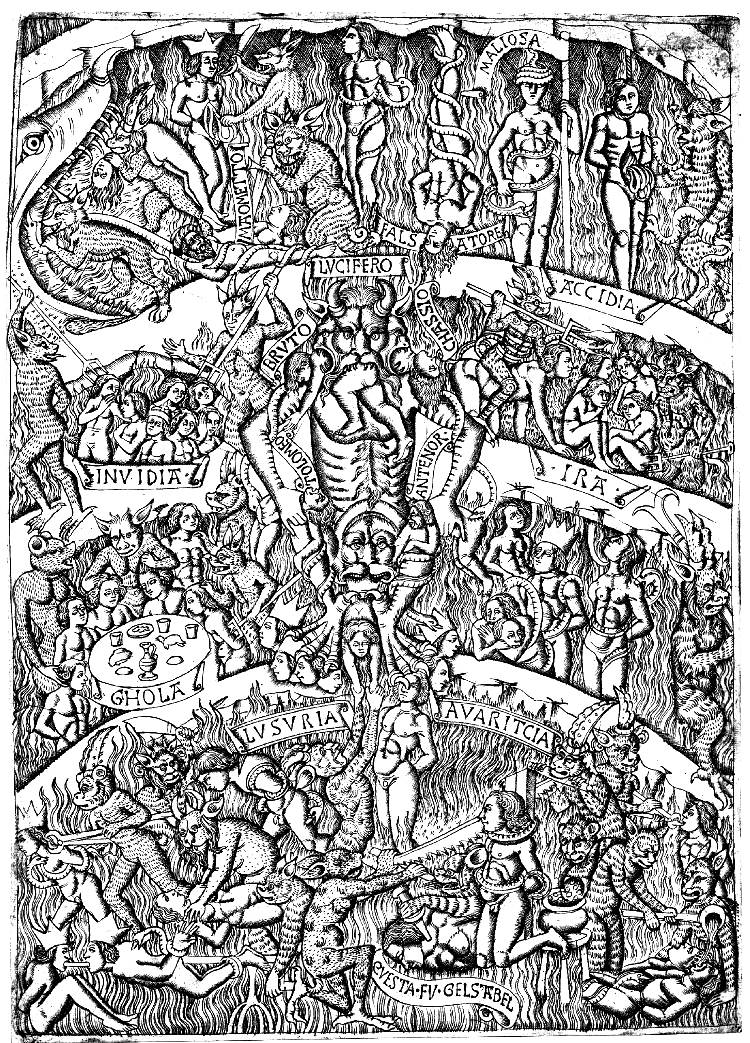Difference between revisions of "Template:Occult.live:Today's featured article"
Occultwiki (talk | contribs) |
Occultwiki (talk | contribs) |
||
| (32 intermediate revisions by the same user not shown) | |||
| Line 1: | Line 1: | ||
[[File: | [[File:Map of Hell.png|200px|left]] | ||
'''[[ | The '''[[Hierarchy of Hell]]''' represents the organizational structure of [[Hell]] as envisioned by [[occult]] authors in their [[grimoire]]s concerning [[demon]]s, especially [[Goetic demon]]s. Depending on the source, different authors ascribe varying ranks and positions to different infernal spirits. The best sources for this information are ''[[The Grand Grimoire]]'' and the ''[[Lesser Key of Solomon]]''. The concept of the hierarchy and the categorization of spirits into various ranks seems to have been a serious preoccupation with the early authors of occult literature. Nearly every book on magic mentions at least a few demons and attempts to assign them a structure analogous to governments common in Europe at the time. They are all monarchical in nature. | ||
In most works dealing with the 72 [[Goetic demon]]s, there is a rigid hierarchical structure for the demons, grouping each of them into ranks of nobility (including a knight and presidents). [[Occultist]] author [[Travis McHenry]] further explored these demonic ranks in his book ''[[The Grimoire of Heaven and Hell]]'', giving the reasons various demons were assigned to their specific class of nobility. | |||
'''([[ | '''([[Hierarchy of Hell|Full Article...]])''' | ||
Latest revision as of 18:16, 28 July 2025
The Hierarchy of Hell represents the organizational structure of Hell as envisioned by occult authors in their grimoires concerning demons, especially Goetic demons. Depending on the source, different authors ascribe varying ranks and positions to different infernal spirits. The best sources for this information are The Grand Grimoire and the Lesser Key of Solomon. The concept of the hierarchy and the categorization of spirits into various ranks seems to have been a serious preoccupation with the early authors of occult literature. Nearly every book on magic mentions at least a few demons and attempts to assign them a structure analogous to governments common in Europe at the time. They are all monarchical in nature.
In most works dealing with the 72 Goetic demons, there is a rigid hierarchical structure for the demons, grouping each of them into ranks of nobility (including a knight and presidents). Occultist author Travis McHenry further explored these demonic ranks in his book The Grimoire of Heaven and Hell, giving the reasons various demons were assigned to their specific class of nobility.
